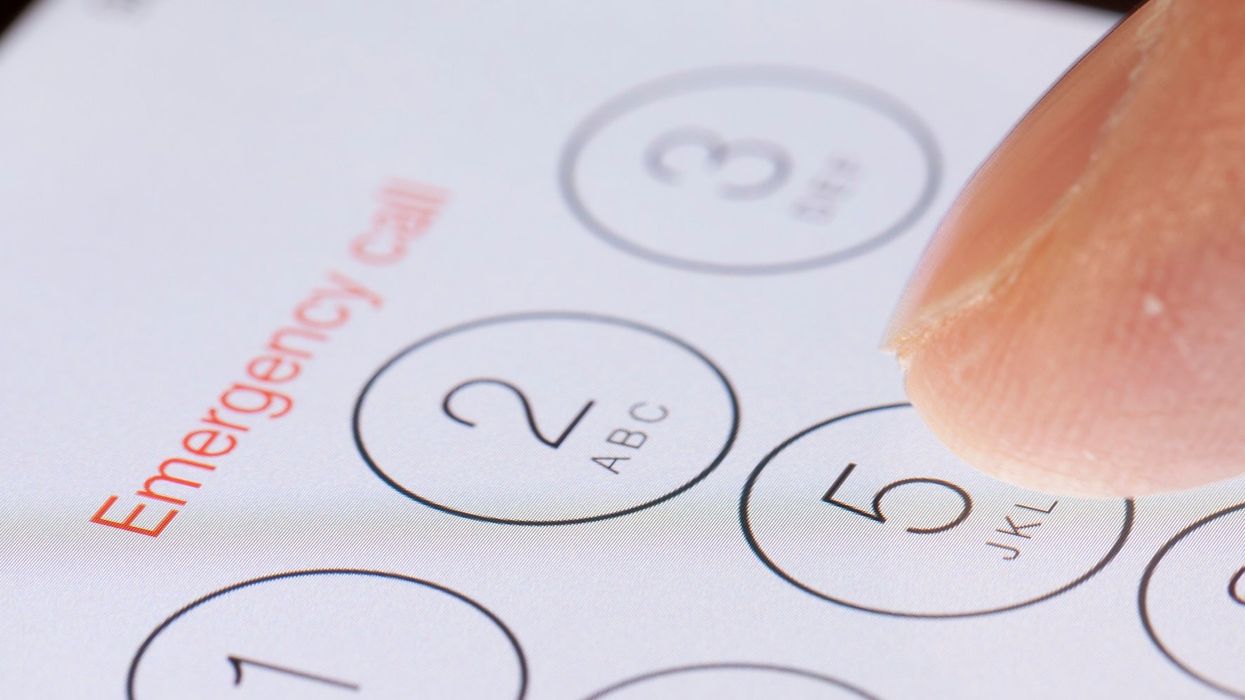
Sometimes, when a person calls 999, talking might put them in danger. It's a terrifying thought, but being prepared for every eventuality is the best way to be safe.
If the person dialling the emergency services can't speak, the operator will ask them to make a noise without actually speaking, or tap their phone.
If at this point the operator still doesn't hear a response from the caller, it’ll be assumed that he call was accidental and it won’t be investigated further.
But sometimes, that's not helpful. What happens if the emergency call isn't an accidental pocket-dial?
In the case of an intruder, for example, making any noise could potentially put someone in further danger.
If making any noise could put a caller at risk, there’s a third option that not many people are aware of that will ensure help is dispatched.
If you ever find yourself in a situation where you need to call for emergency help without making a noise, call 999, then dial 55 when you get through to the switchboard.
According to Independent Office for Police's Regional director Catrin Evans:
It is always best to actually speak to a police call handler if you can, even if by whispering, but if you are putting yourself or someone else in danger by making a sound, there is something you can do.
"Make yourself heard by coughing, tapping the handset or - once prompted by the automated system - by pressing 55."
Here's how to get the attention of the emergency services in the safest way possible if you can't talk on the phone,
When you call 999
Emergency calls to the 999 number are directed to BT operators who will ask which service you need. If you don't request a service but anything suspicious is heard throughout the call the operators will connect you to a police call handler.
If you're calling 999 from a mobile
If you're able to speak to an operator then this is always recommended, if you're otherwise unable to talk however you may be asked to cough or tap the keys on your phone in response to questions.
Should making an audible sound put you in danger and it's difficult for the BT operator to judge your safety you will be transferred to the Silent Solution system.
The Silent Solution system is used to filter out hoax calls and exists for people unable to speak during their emergency.
If you're transferred you will hear an automated police message that lasts 20 seconds beginning with the words: 'you are through to the police.' You will then be asked to press 55 to be transferred to a police call manager, the BT operator however will also remain on the line to listen. If you don't press 55 your call will not be transferred. It is also worth noting that simply pressing 55 will not provide the police with your location.
What happens next?
The police handler will attempt to communicate with you by asking simple 'yes' or 'no' questions, if you're not able to answer they will explain how you can communicate via other means.
If you're calling 999 from a landline
Less emergency calls are made by accident on landlines so the process is slightly different.
If operators receive a 999 call from a landline and there is no request for an emergency, the caller does not answer questions, any background noise can be heard and BT operators can't decide whether an emergency service is needed, you will be immediately connected to a police call handler.
If you must hang up the call you will remain connected for 45 seconds in case you pick up again and calls from landlines will also provide the police with informatiion regarding the location of your call.
In the UK, about 20,000 silent emergency calls are made in the UK each day. A quarter of which are transferred to the Silent Solution system by handlers unsure whether they are genuine. In the Silent Solution system, those who type “55” are detected in about 50 of these 5,000 calls.
A new campaign is pledging to raise awareness of this method, because you never know when it could save your life. Read the full Silent Solution guide.
H/T: indy100
More: US police aim gun at black student as he picks up litter from his front garden














